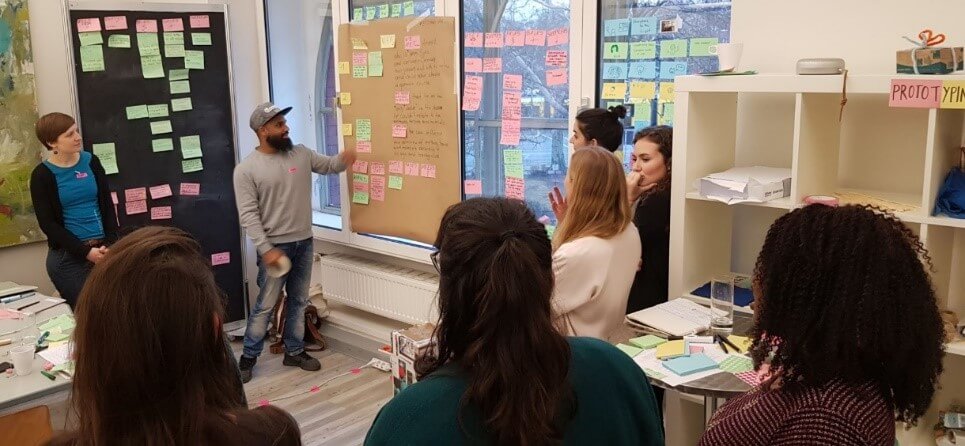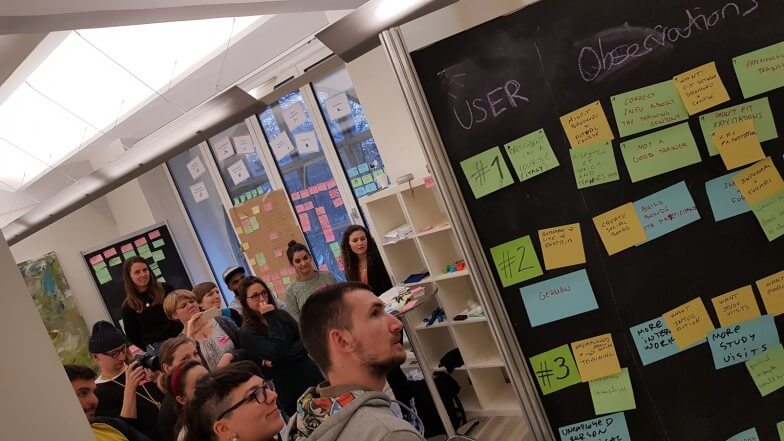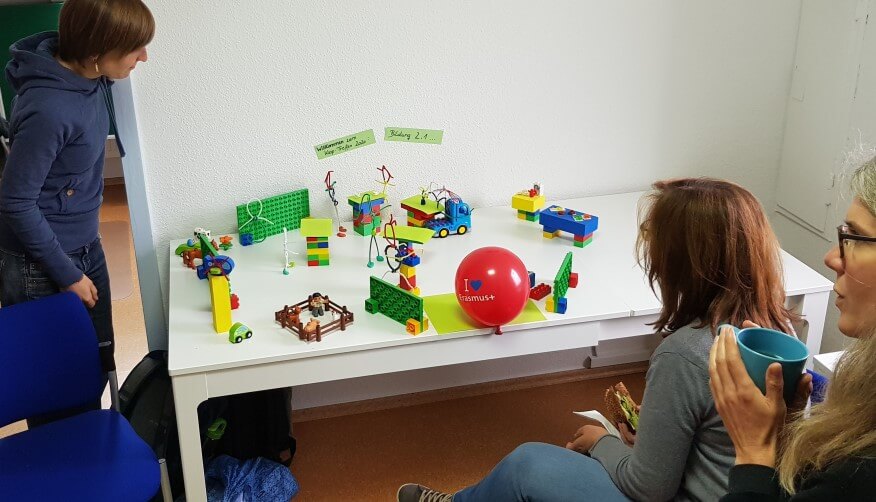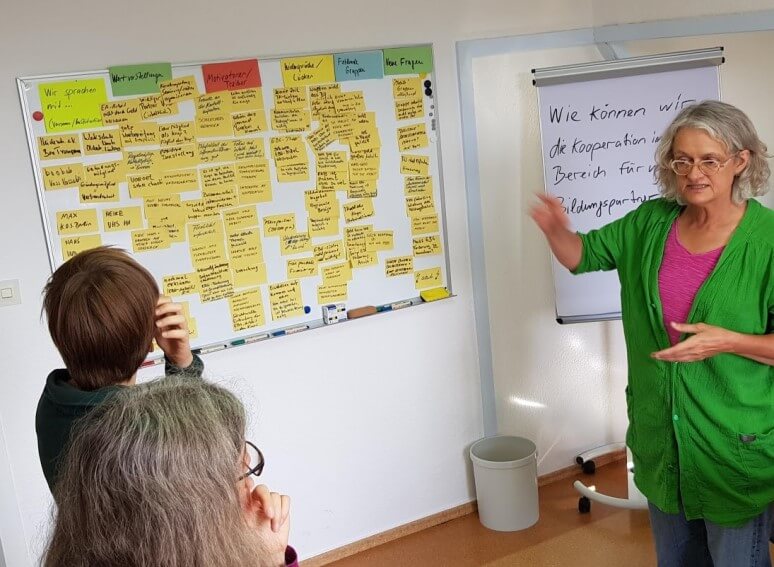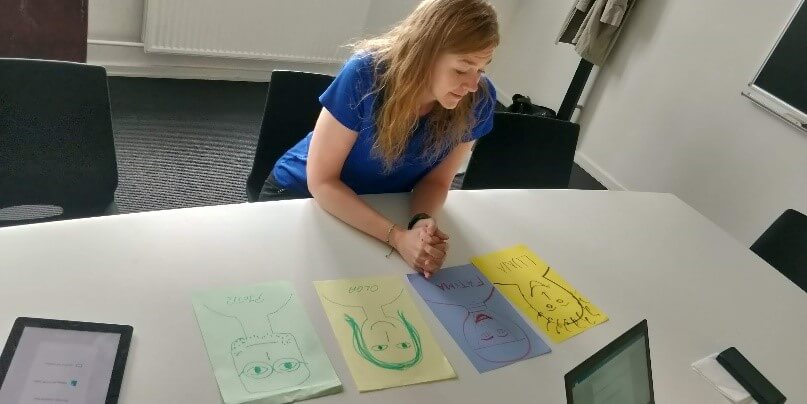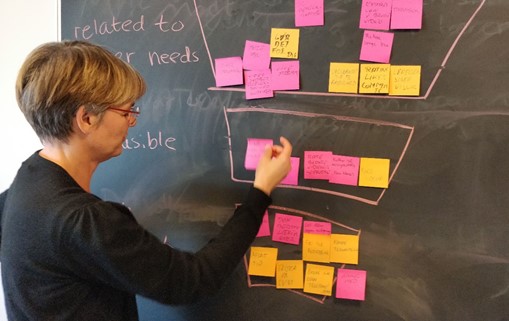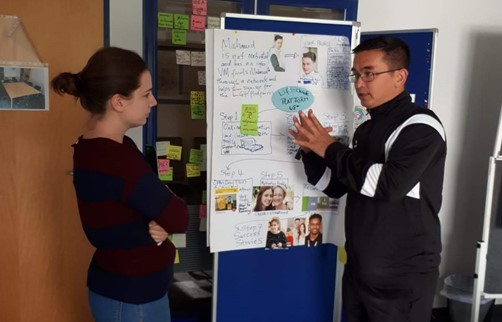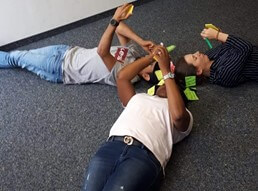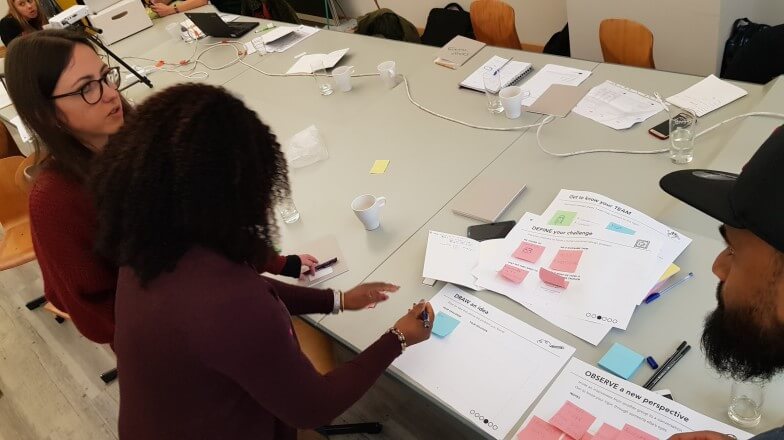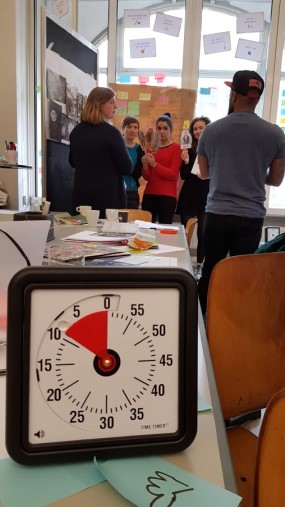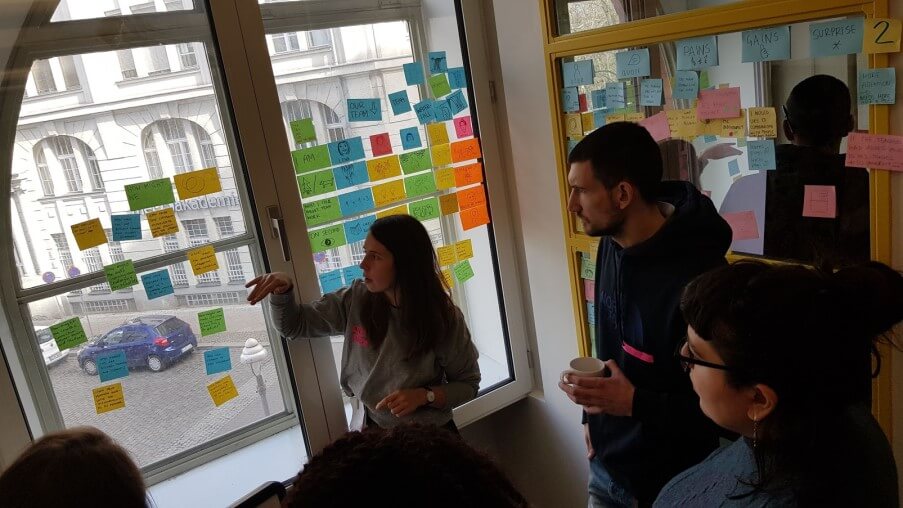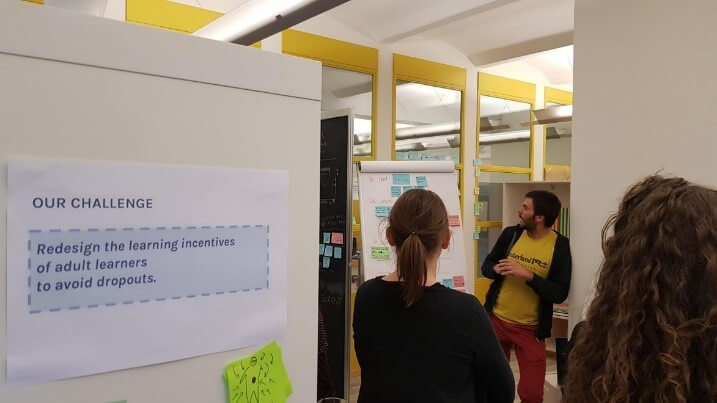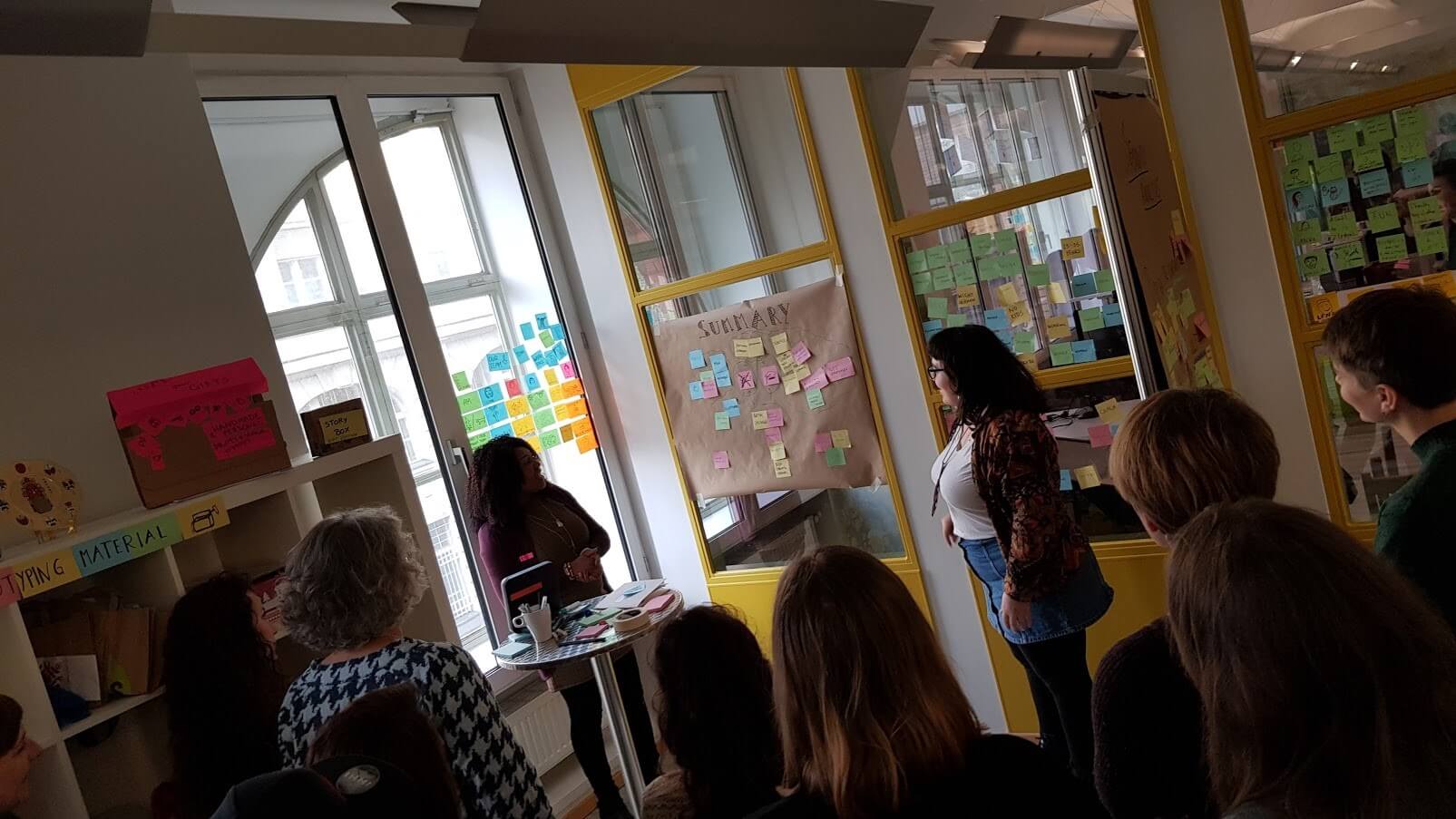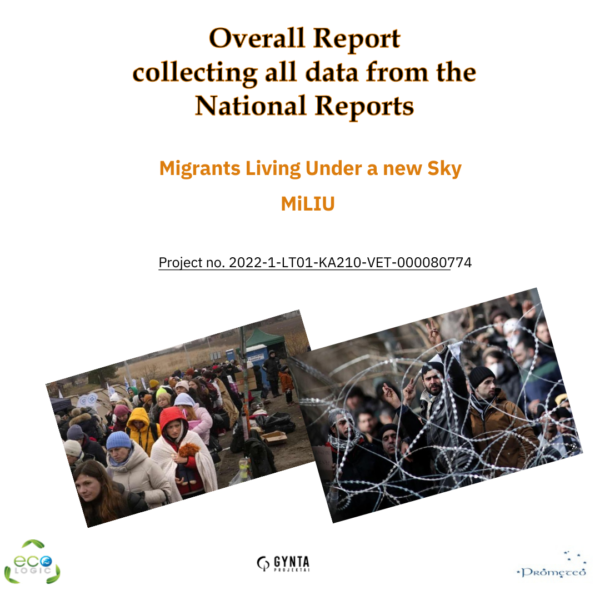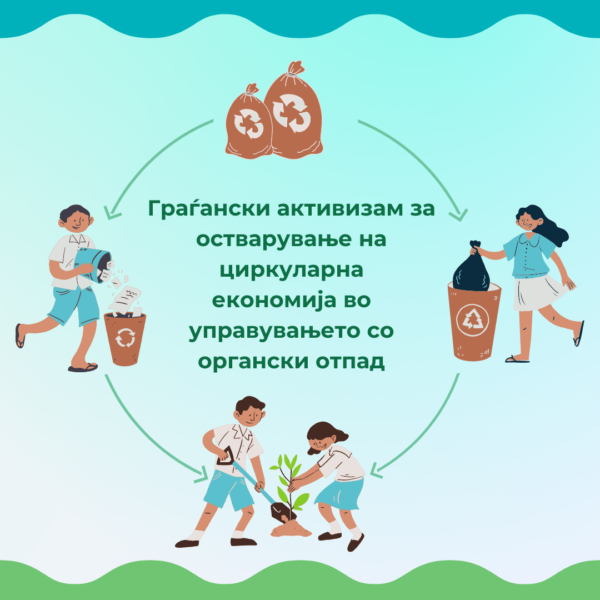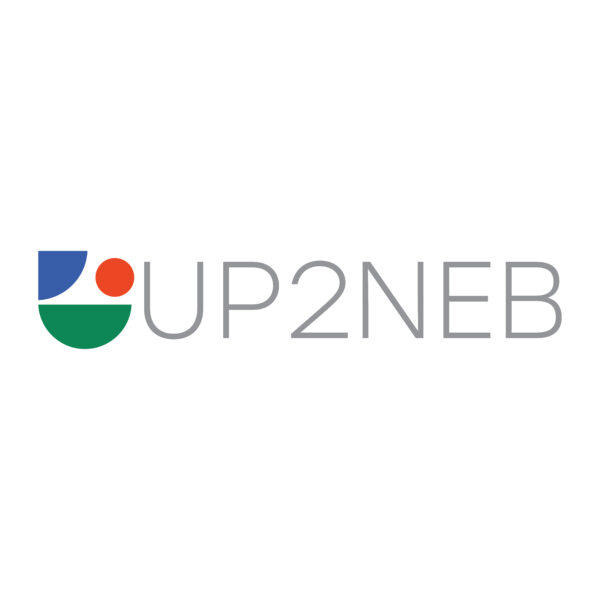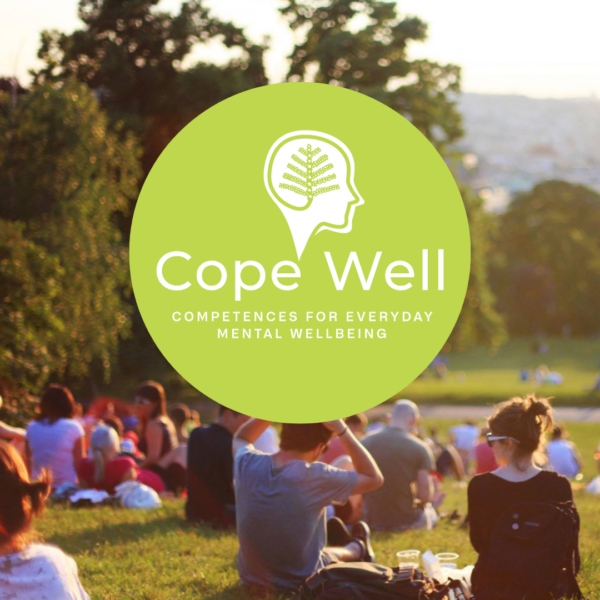Project title: Design Thinking as a means to innovative product development in adult learning
Project Acronym: D-learning
Project start date: 01.12.2018
Duration: 24 months
Project end date: 30.11.2020/31.03.2021
Project number: 2018-1-DE02-KA204-005030
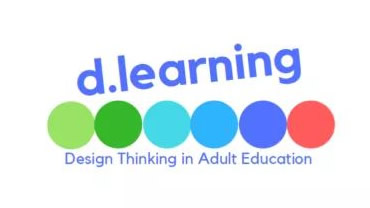
Coordinator of the project
Verein Niedersächsischer Bildungsinitiativen e.V. – Germany
Partner Organizations
- CESIE, Italy
- Eco Logic, The Republic of North Macedonia
- Videnscenter for Integration, Austria
- Synthesis center for research and education Limited, Cyprus
Context/Background
In adult learning, the development and design of products targeting at different specific target groups’ and individual learners’ needs become more and more important. This includes traditional and digital teaching and learning material, such as websites and databases, MOOCs and e-learning environments, education games – and as the latest development – virtual reality based material.
Specifically the digital revolution has changed the expectations of learners towards adult education institutions and their learning offerings – analogue or digital – dramatically. The challenge for educators and decision makers in adult learning institutions is how to meet these expectations by developing and providing high quality outputs. Especially for “traditional” education providers and those who have limited development resources, these challenges require a change of strategy and practice in terms of problem-solving as regards educational product development. It is therefore crucial to find pathways how to develop and disseminate educational products in an efficient manner oriented to the respective learners’ needs. Strategies and techniques for the effective, timely and target group oriented design and development of such approaches are needed.
Objectives
The objectives of D-learning are:
The main objective of the D-LEARNING project is to transfer and adapt the approach of Design Thinking, promoting a state-of-the-art methodology and giving advice and guidance how to apply the methodology to the needs of adult learning institutions. Design Thinking is a tested methodology for the practical and creative resolution of problems with the intent of producing a constructive result for the future, which has originally been used by design and IT companies. Meanwhile the methodology has been applied in the third sector economy as well, and many social innovation developments are based on creative Design Thinking processes.
The D-LEARNING project will develop tools to easily implement Design Thinking processes in adult learning institution environments. Furthermore, by using this tested methodology, adult learning institutions across Europe will be enabled to develop shared educational products – like intellectual outputs in Erasmus+ projects – at a higher level of quality, since the methodology allows combining the knowledge and experience of the project partners in a structured and results-oriented way.
By providing educators and decision makers in adult learning institutions with a state-of-the-art tool to develop high quality educational products, the D-LEARNING project is strongly contributing to the objective of the ET 2020 strategic framework to improve the quality and efficiency of education and training.
The D-LEARNING project is mainly addressing adult educators and decision makers in adult learning institutions as target groups, but the outcomes of the project can easily be transferred to other educational sectors as well. Special attention will be given to the easy handling of the project outputs in order to facilitate the usability and transferability in adult education and beyond.
Description of Activities and Methodology
1. D-LEARNING manual- IO1
The aim of this intellectual output is the joint creation of an electronically usable, multilingual manual (e-book) for educators and decision makers in adult education and beyond, enabling them to use the D-LEARNING approach in a state-of-the-art way to develop high quality products related to adult learning in their respective organisations and/or networks.
The expected impact will be that the users (mainly educators and decision makers in adult education and beyond) will gain a new methodology for the development of high quality products in adult learning environments at short term – and being enabled to apply to them at medium and long term – which is capable to supply learners’ groups and individuals with state-of-the-art offerings in education. The D-LEARNING manual will be transferable to other educational areas as well, where similar activities (products, programmes) are going to be developed. The main innovative aspect of the manual is the direct reference of a Design Thinking product to adult learning environments.
2. D-LEARNING workshop curriculum-IO2
The aim of this intellectual output is the joint creation of an electronically usable, multilingual curriculum (e-book) for staff trainers in adult education and beyond, enabling them to run a 1-3 day workshop teaching the D-LEARNING approach in a state-of-the-art way to staff members (educators and decision makers) in adult learning institutions and beyond. This will be supporting the success of the D-LEARNING manual very strongly, since the target groups of the manual will get a deeper insight into the opportunities of Design Thinking in adult education, and how to apply the methodology in an appropriate way.
3. Training
A common understanding of Design Thinking. The staff from the project partner organisations who are working on this project will themselves be part of a learning process, in which they develop competences in the application of Design Thinking by joining a transnational training activity offered by VNB together with competent external Design Thinking trainers. The Design Thinking trainers will as well be incorporated into the development of the D-LEARNING manual, and possibly join the final project meeting in order to give the opportunity to commonly reflect on the application of the methodology.
4. Multiplier events
The workshop design as regards content will be in hands of the implementing project partner and will include local needs and expectations of participants.
The events will be dedicated to the presentation and the testing of project outcomes. Final beneficiaries (educators and decision makers from adult learning institutions) will thereby be included, as well as stakeholders and multipliers from the adult learning sector.
The workshops will include the presentation of the project and its results as well as practical workshop sessions, with i.e. working groups to discuss the further use and distribution of the project outcomes, or the exemplary testing of the teaching methodology.
Results and impact
The main result of the project will be an electronically accessible, multilingual guide book to the Design Thinking methodology (“D- LEARNING manual”) with recommendations, examples and resources, enabling stakeholders and teaching staff to improve their skills and abilities in the application of Design Thinking in their own organisation.
In addition, in a second intellectual output, a workshop curriculum linked to the D-LEARNING manual content will be developed and tested, enabling educators to apply the Design Thinking methodology to professional learners, i.e. in staff training for educators. Multiplier events will take place at regional level in order to promote the project outcomes. This will be supporting the success of the D-LEARNING manual very strongly, since the target groups of the manual will get a deeper insight into the opportunities of Design Thinking in adult education, and how to apply the methodology in an appropriate way.
